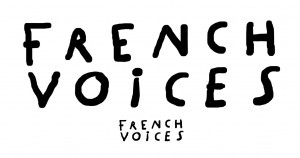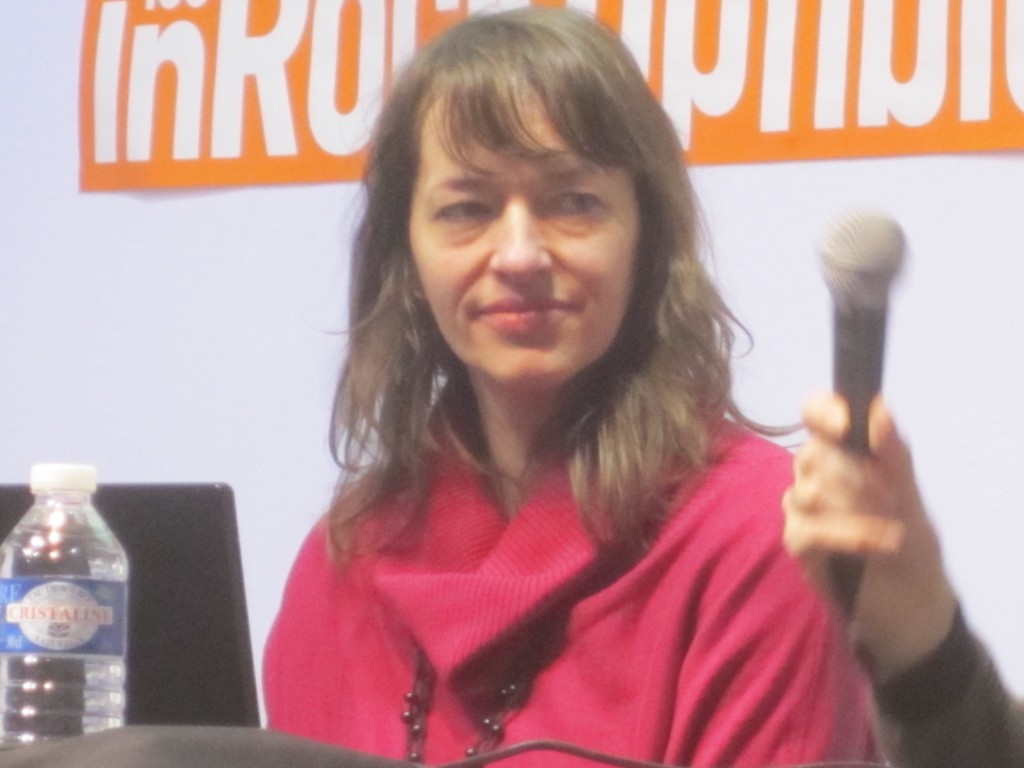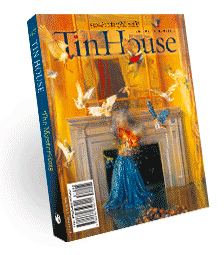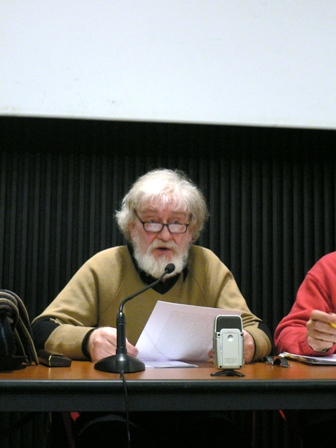- Yesterday, Chad Post of Open Letter announced the shortlist for this year’s Best Translated Book Award: A Life on Paper makes the cut! Congratulations to the authors and translators among this year’s nominees!
- I catch up quite belatedly with Marc Lowe’s measured, astute review of A Life on Paper at the UK’s Neon Magazine.
- Châteaureynaud scholar Christine Bini reviews the author’s latest two books at the website La Cause Littéraire (in French): Résidence dernière, a chapbook of three short stories, and La vie nous regarde passer, a memoir of the author’s early years.
Châteaureynaud Update
March 25th, 2011 § 1 comment § permalink
US Editors: Check Out This Year’s French Voices Grantwinners!
March 17th, 2011 § 0 comments § permalink
American editors! You want to publish French books, but you don’t know which ones are good! Also, you don’t have the money! How does $6,000 from the French government sound? Good, right? Then check out this list of 2010 winners of the French Voices grant!
What is the French Voices grant program, you ask? Why,
“French Voicesâ€, in partnership with the PEN American Center, financially supports the translation and publication of up to ten contemporary French or Francophone works per year.
A committee of independent professional experts has been brought together to select the works to be translated.
The premise is to create what will become a collection of 30 books over an initial period of three years. The criteria for selection will be new trends in fiction and under-represented perspectives or points of view in non-fiction works.
The French works published in the US will each receive the patronage of a major American writer, either in the form of a preface to the book, or his or her involvement in a major public event, etc.
Georges-Olivier Châteaureynaud’s A Life on Paper was published under the auspices of the French Voices grant, among others. Many of the worthy works selected this year are still orphans looking for a nice publishing house to call home. For your evaluating convenience, all grantwinners come with blurbs, summaries, and translation samples in English. I’d like to draw your attention to two titles in particular, whose samples I translated.
- The River Will Kill the White Man (Fayard, 2009) by prolific French powerhouse Patrick Besson, is an erudite epsionage thriller about the Congo. The latest issue of Georgia Perimeter College’s literary journal The Chattahoochee Review features my translation of the first chapter.
- A Game for Swallows (Cambourakis, 2007) is Zeina Abirached’s stunning graphic memoir about growing up in war-torn Beirut, innovative in its geometric layouts and use of black & white. Excerpts have appeared in Words Without Borders and the PEN America literary journal. I’d like to point out that this is the first French graphic novel ever to receive a literary grant of this caliber towards publication.
Congratulations to all the authors and translators who were recipients of this year’s grants!
James Ensor to Albert Einstein
March 16th, 2011 § 1 comment § permalink
“Between us, allow me to salute a guest of substance, a neighbor haloed in importance. Block of science wreathed in flowers by a colleague of the coast, perched atop a dune. To you, great thinker, handsome caster of convincing rays, your silver mane emits millenary illuminations.
Yes, celestial bodies irradiate the paradise of Rotarian relativities, light the limited field of our table where glasses, cups, crystalware, decanters reflect the sequins, the cries of silk and delight from tipsy young stars; where firecrackers, candles, rockets set our senses ablaze and burn the spirit of our thoughts.
But you, man of light, you reflect suns, inventory the planets, invent moons, invite comets, illustrate the constellations. Moreover, and better yet, you douse the lazy stars, rein in the asteroids straying from their descents.
Mesdames, Messieurs, please forgive my free expression, my humbly pictorial language, my inappropriate words, shrill or ambiguous, anti-mathematical; I’ve always condemned boring worlds and their multiplicity.
Our Rotarian brethren in China and America belch while smoking; we muse while eating, and think while drinking.
Here, dear friends, let us drink and fraternize beneath a sun glazed with the gray of indecisive weather.
*
Alas and alack! Painters, slaves to vision, remain resistant to positive rays as they do to positive reason, to calculations, to probabilities; between reason and understanding, between the appearance and the content of things, a deep discrepancy remains.
And you, eminent scientist, will tell me 6 isn’t 9. And I will say, ‘When with a little kick I upend a 6 that makes a 9,’ and when you tell me that 6 and 8 make 14, I will reply that 6 and 8 make 68; in this case, Mesdames and Messieurs, all is relativity.
We have always said ‘There are more relative truths than absolute truths.’
Let us justly appreciate the old opportune Belgian motto: ‘Light bursts forth from the collision of ideas.’
*
Dear great master, accept my salutations. Forgive these words flavored with feeling.
To you, my friends, thanks from my heart and my hand with its curved line of life and joy.
From the great incandescent hearth of my heart, which sometimes muddies matters by striking two at noon, but a masterpiece, no less, of the divine watchmaker.
*
Let us all promptly praise the great Einstein and his relative orders, but condemn algebraism and its square roots, the surveyors and their cubic reasons.
I say that the world is round, like god the sun and the lady moon, round are cheeks, round are smiles, round are pupils and round posteriors, round are pastries and round plates, round are goblets but let us sing out squarely this time, Mesdames and Messieurs, all together if you please:
‘Einstein alone reigns in the heavens.’ ”
First appeared in Le Littoral, 8/26/1933. Found in My Writings, or Self-Important Swaggerings, ed. Hugo Martin (Éditions Labor, 1999) » Read the rest of this entry «
Ulli Lust: Trop n’est pas assez
March 15th, 2011 § 0 comments § permalink
Austrian Ulli Lust was one of ten women whose graphic novels figured among the Angoulême Festival’s 58 Official Selections this year. Her heady, liberating, life-hungry road memoir of punk youth in Europe, Trop n’est pas assez [Too Much Is Not Enough], from the small French press Ça et Là , was the only German-language nomination. It shared the Prix Révélation for best new talent with another memoir: Elodie Durand’s La Parenthèse [The Parenthesis], a somber chronicle of a battle with brain-tumor-related strokes and amnesia.
I had the pleasure to attend a public interview with her while at Angoulême. Lust speaks in English, and sits beside her interpreter, who relays her words to the French-speaking crowd of mostly teenaged girls. Halfway through the long festival day, in the hot and crowded indie comics tent, she looks a little like a bedraggled Charlotte Rampling, but the odd question brings her to rapt and startling life: a gush of gratitude or enthusiasm giving us a glimpse of the spiky-haired devil-may-care girl of 17 immortalized in her own book.
“I remember everything from when I was 17,†Lust muses. “Last year, not so much.â€
Set in summer 1984, Too Much tells the story of Ulli and Edi, who sling a sleeping bag over one shoulder and set out with nothing—not even IDs—but the clothes on their backs. » Read the rest of this entry «
Mid-March Roundup
March 15th, 2011 § 0 comments § permalink
The Ides is a perfect time to cast a look round the interwebs:
- Nicole Taylor’s first published short story, “The Excision,” has been up just over a month at the groovy spec mag Brain Harvest. This is only the beginning of her coming fiction domination, so get in on the ground floor.
“She buttoned up her shirt and stared into the mirror to see how obvious her bloodstains were. They looked like polka dots.”
- Will Schofield moves his landmark blog A Journey Round My Skull to the spiffy 50 Watts, which is admittedly pretty and loads much faster. I’m a month behind reporting this change, just in time to report his syndication of my post on Belgian horror writer Thomas Owen, complete with Rorschach Test, has shifted accordingly, from here to here.
“If Ray is the “Belgian Poe,” what writer, then, to pick for Owen, most commonly considered his closest spiritual son? Machen? Blackwood? Lovecraft? Campbell? In fact there is no one in English quite like him, no one who has devoted himself so completely and single-mindedly to pursuing and refining what we might in English call the tale of supernatural horror to an almost anachronistic degree of classical purity.”
- My translation of occasional fabulist Maurice Pons’ fine and moving story “The Baker’s Son” is out in the latest issue of Tin House, numbered 47: The Mysterious, which just hit stands the first of the month. I haven’t gotten a copy yet. Someone go take a look and tell me how it is! I’m pleased to report I was asked to write a preface providing context for the author’s work wherein I include some literary gossip.
“Pons has, since the seventies, the era of his profligacy, become something of a cult figure in French letters, his rare collections cause for delectation among a select readership. These tales, for which he is justly renowned, belong to what might be termed the “gentle impossibleâ€; while most fantasy opens up a rift in reality, Pons is content to point out discreetly a crack in its seemly veneer.”
- The latest issue of Georgia Perimeter College’s literary journal The Chattahoochee Review contains my translation of the first chapter from The River Will Kill the White Man (Fayard, 2009) by prolific French powerhouse Patrick Besson. It also features an exclusive interview I conducted with the author, which turned out rather nicely, but took some doing. I forwarded the list of questions I’d composed in French to his agent, who forwarded it in turn to the foreign rights manager at his French publisher. The notoriously hard-to-pin-down Besson was then summoned to the Fayard offices to dash off his responses on the spot, which he did with customary brio. The document was then sent back to me for translation. I provided a brief forward, and passed it on to Chattahoochee. It’s worth seeking out if you’re a fan of the author, or remember the chapter from his novel The Brothers of Consolation I published in 2008’s Two Lines XV: Strange Harbors. In the interview, Besson opines, “Heroism is the only thing a writer needs, along with a good editor and good translators.” To the either/or question, “Bonnie or Clyde?”, he says, “Which one was the woman again?”
- My last post in January for Mischief & Mayhem before going on hiatus is a contemplation of magic. Disappearing trick not included.
- Chad Post at Three Percent links to the first installment of my series, “A Visit with Châteaureynaud,” as an argument for why the collection A Life on Paper should win the Best Translated Book Award.
A Visit with Châteaureynaud: Part 2 of 3
March 13th, 2011 § 0 comments § permalink
This is the second of three posts about a recent visit with author Georges-Olivier Châteaureynaud, recently translated into English for the first time with A Life on Paper. In the last installment, I describe arriving at his house, and discuss his latest works. The evening conversation drifted toward literary chatter, which is where we pick up:
“How’s the new novel coming?â€
“I’ve written up a few synopses of ideas so far, to see which one I like best.â€
“You work from synopses?â€
“I didn’t always. I probably just put my head down and dived into Les Messagers,†he said, referring to his first novel from 1974, which won the Prix des Nouvelles Littéraires. Slim, dark, and elusively allegorical, it concerns an aimless young man who apprentices himself to a mysterious messenger forever seeking the intended recipient of the message he bears. It was reissued by Actes Sud in a revised version in 1997.
“Do you do them for yourself, or your publisher?â€
“Both. They’re usually around fifteen pages, though the one for L’Autre rive was sixty, and sold my editor on it. Of course, the story changed a lot after that.†The 650 page L’Autre rive [The Other Shore] recounts Bennett Riven’s search for his biological father against the complex sociological backdrop of Écorcheville, a city on the river Styx. The 2007 novel won the Grand Prix de l’Imaginaire at Utopiales, the science fiction and fantasy festival in Nantes. It is, by his own admission, the closest he’s come to magical realism—which may, he opines, be the way all novels of the fantastic incline.
“The basic pattern of the classical fantastical story—reality destabilized by a breach—lends itself to the short form,†said Châteaureynaud. “True novels of the fantastic are hard to pull off, and the successes few and far between, guiding our way like landmarks.â€
Uniting as it does settings and characters from his hundred-odd short stories, L’Autre rive has the feel of a statement or summation.
“There’s this holdover idea in French literature that one of a writer’s great tasks is creating a consistent, coherent world over the course of a body of work: Balzac, Zola,†said Châteaureynaud. “Critics look kindly on it.â€
“Is that what you were trying to do with L’Autre rive?â€
“Not consciously, no—that’s not what I set out to do,†he smiles. “But my world isn’t very coherent, either.â€
While characters and settings seem to recur throughout Châteaureynaud’s work, perhaps it is more accurate to say that the names have been intentionally re-used, though any given incarnation of a person or place may have only an oblique connection to the last, or the next. This lends continuity in his body of work a dreamlike quality, a sense of slippage.
“I have the great fortune of remembering my dreams,†Isak Dinesen once said. Châteaureynaud shares this blessing. » Read the rest of this entry «
Best European Fiction 2012!
March 12th, 2011 § 5 comments § permalink
I’m proud to announce that my translation of Bernard Quiriny’s “Rara Avis” will join the roster of authors, translators, and stories honored by inclusion in Dalkey Archive‘s anthology Best European Fiction 2012, guest edited by Aleksandar Hemon. This will mark Belgian Francophone fabulist Quiriny’s third appearance in the U.S., after “A Guide to Famous Stabbings” in the Spring 2010 Subtropics and “Fear of the First Line” in the July 2010 issue of World Literature Today. While these stories were taken from his first collection, Fear of the First Line, the story in the Dalkey anthology is taken from his second collection, Contes carnivores, which won the Prix Rossel, Francophone Belgium’s top literary prize. I’d like to thank Dalkey Archive, editor Hemon, the Fulbright Foundation, and the NEA for their support of my work on this author.
Congratulations to all in the anthology!
Austria • Lydia Mischkulnig, “A Protagonist’s Nemesisâ€
Belgium: Flemish • Patricia de Martelaere, from The Unexpected Answer
Belgium: French • Bernard Quiriny, “Rara Avisâ€
Bosnia • Muharem Bazdulj, “Magic†and “Sarajevoâ€
Bulgaria • Rumen Balabanov, “The Ragiadâ€
Croatia • Maja Hrgović, “Zlatkaâ€
Czech Republic • JiÅ™i Kratochvil, “I, LoshaÄâ€
Estonia • Armin Köomägi, “Logisticians Anonymousâ€
Finland • Maritta Lintunen, “Passiontideâ€
France • Marie Darrieussecq, “Juergen the Perfect Son-in-Lawâ€
Georgia • David Dephy, “Before the Endâ€
Germany • Clemens Meyer, “The Case of M.â€
Hungary • Zsófia Bán, “When There Were Only Animalsâ€
Iceland • Gerður Kristný, “The Ice Peopleâ€
Ireland: English • Desmond Hogan, “Kennedyâ€
Ireland: Irish • Gabriel Rosenstock, “‘. . . everything emptying into white’â€
Latvia • Gundega RepÅ¡e, “How Important Is It To Be Ernest?â€
Liechtenstein • Patrick Boltshauser, “Tomorrow it’s Deggendorfâ€
Lithuania • Ieva ToleikytÄ—, “The Eye of the Maplesâ€
Macedonia • Žarko Kujundžiski, “When the Glasses are Lostâ€
Moldova • Vitalie Ciobanu, “Orchestra Rehearsalâ€
Montenegro • Andrej Nikolaidis, “The Comingâ€
Netherlands • Sanneke van Hassel, “Pearlâ€
Norway • Bjarte Breiteg, “Down There They Don’t Grieveâ€
Poland • Janusz Rudnicki, “The Woes of Idiot Augustusâ€
Portugal • Rui Zink, from Tourist Destination
Romania • Dan Lungu, “Seven PM Wifeâ€
Russia • Danila Davydov, “The Telescopeâ€
Serbia • Marija Knežević, “Without Fear of Changeâ€
Slovakia • Róbert Gál, “Agnomiaâ€
Slovenia • Branko GradiÅ¡nik, “Memorinthâ€
Spain: Castilian • Santiago Pajares, “Todayâ€
Spain: Catalan • Pep Puig, “Clara Bouâ€
Spain: Galician • AgustÃn Fernández Paz, “This Strange Lucidityâ€
Switzerland: French • Noëlle Revaz, “The Childrenâ€
Switzerland: German • Michael Stauffer, “The Woman with the Stocksâ€
Switzerland: Romansh • Arno Camenisch, from Sez Ner
Ukraine • Serhiy Zhadan, “Owner of the Best Gay Clubâ€
United Kingdom: England • Lee Rourke, “Catastropheâ€
United Kingdom: Scotland • Donal McLaughlin, “enough to make your heartâ€
United Kingdom: Wales • Duncan Bush, “Bigamyâ€
A Life on Paper: In Classrooms Now!
March 11th, 2011 § 0 comments § permalink
Exciting news! Novelist John Gregory Brown is teaching Georges-Olivier Châteaureynaud’s A Life on Paper at Virginia’s Sweet Briar College in his class English 383: The Fantastic in Fiction. Over the course of the semester, students will be reading all 23 stories in the anthology at a rate of one to two per week and blogging their reactions! I am delighted to have Châteaureynaud join the ranks of other authors on the syllabus like Kelly Link, Steven Millhauser, Frederic Tuten, and Gabriel Garcia-Marquez—to have his stories read and discussed in the context of theirs.
Châteaureynaud Website Unveiled
March 10th, 2011 § 1 comment § permalink
For any fans out there who read French, Christine Bini, author of the critical study Marble and Mist: The Literary Universe of Georges-Olivier Châteaureynaud, now continues her tour of the Castelreynaldian universe to offer us a wonder worthy of those in his works: the first website devoted to the great author. Named for the “metamorphic” town where much of his early fiction is set, Eparvay features a wealth of information: links to studies, reviews, and interviews; video and audio clips; photos and biographical information; and a complete bibliography with plot summaries. This is the premier source of information online about Châteaureynaud in any language, not to be missed!
A Visit with Châteaureynaud: Part 1 of 3
March 8th, 2011 § 0 comments § permalink
Georges-Olivier Châteaureynaud drives an old, navy, four-door Mercedes C220, which was easy to spot among the Renaults and the Opels massed in traffic at the RER station on a rainy Wednesday rush hour. We shook hands when I got in, and he warned me not to slam the door. In an attempt to pry the passenger side mirror off years ago, a would-be thief had damaged the housing, which a series of mechanics had never managed to re-attach more lastingly than with masking tape.
Châteaureynaud had just come from signing 300 press copies of his latest book, a memoir of his early life from Grasset, entitled La vie nous regarde passer [Life Watches Us Go By].
“I lost fifteen copies,†he said. “I left them in the metro. The stockroom did a good job sealing the box up really tight, so instead of trying to open it, the police have probably blown it up by now.â€
“It’s one way to spread the word… or words,†I said.
“Yes… you could say that book really burst onto the scene!â€
Châteaureynaud’s latest work of fiction, Résidence dernière [Final Residence], had come out a few weeks earlier from Les Éditions des Busclats, a small press founded by poet René Char’s daughter, Marie-Claude, and her partner, critic Michèle Gazier. Since 2007’s De l’autre côté d’Alice [Through a Looking Glass Darkly]—three adult meditations on popular children’s heroes Alice, Peter Pan, and Pinocchio—Châteaureynaud had been experimenting with thematically linked triptychs of short stories. The tales in Résidence dernière, featuring a decrepit sphinx, a magic mirror, and a nightmarish limbo, revolve around writer’s retreats, examining such typically Castelreynaldian themes as solitude, the anxiety of creation, and the writing life. I thought the final, title story among the finest he’d written. In it, a number of aging writers, worrying over posterity, find themselves on a bus headed for a mysterious residency. » Read the rest of this entry «






